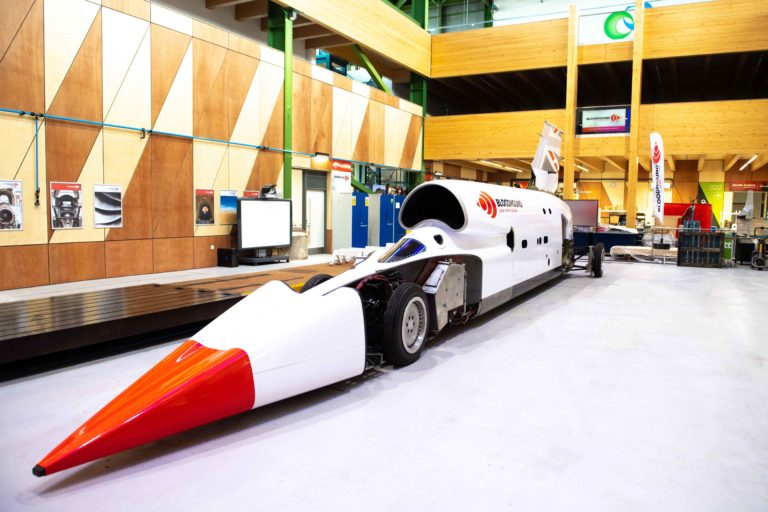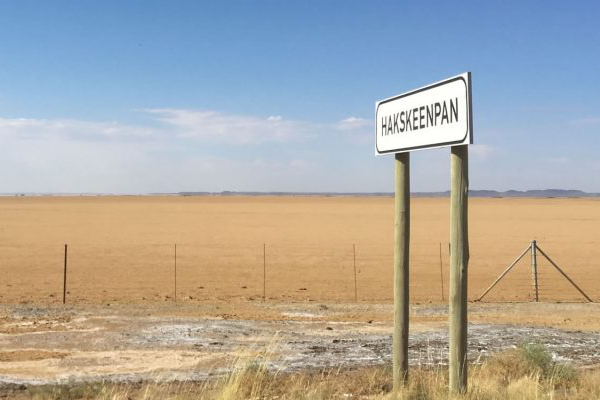The Bloodhound Land Speed Record (LSR), formerly the Bloodhound Project, is back on track and ready to conduct a high-speed testing programme at Hakskeen Pan in the Northern Cape in October 2019.
The project and the now reclaimed Bloodhound SSC (supersonic car) underwent successful runway trials at Cornwall Airport Newquay in October 2017 reaching speeds of 320km/h. The Bloodhound team will be targeting 800km/h as a key milestone-speed on the journey to setting a new world land speed record – set two decades ago at a whopping 1,227.985 km/h.

According to Bloodhound LSR, data from hundreds of sensors on the car will be shared in real time to allow engineers to monitor how the car is behaving as it ‘dices with physics’. The trials in South Africa will enable the team to test this data distribution, as well as the live video stream, at high speeds in preparation for the land speed record runs.
‘I’m thrilled that we can announce Bloodhound’s first trip to South Africa for these high speed testing runs,’ says Ian Warhurst, Bloodhound LSR CEO. ‘This world land speed record campaign is unlike any other, with the opportunities opened up by digital technology that enabled the team to test the car’s design using computational fluid dynamics (CFD) and that will allow us to gather and share data about the car’s performance in real time. In addition, we’re running the car on a brand new surface. The wheels have been designed specifically for this desert lake bed, but it will still be vital to test them at high speeds before making record speed runs.’

The testing programme will take place in the Northern Cape at at Hakskeen Pan in the Mier wilderness region of the Kalahari. The salt pan was once a river bed, and is regarded by land-speed enthusiasts to the one of the flattest places on earth – and is thus ideal for breaking records and testing high-speed, supersonic cars.
Since the initial project’s inception in 2008, 16,000 tonnes of rock and stone has been excavated to create the 19-kilometre track that will finally be used.
The milestone record runs are currently scheduled for late 2020, according to the Bloodhound Land Speed Record website.
Images: Bloodhound Land Speed Record
Also read:
Cape Town could host Formula E races
Kalahari park now an international dark sky sanctuary
You may also like
Related Posts
China’s National Health Commission has published a list of controversial coronavirus treatments that have animal...
read more
Warmer sea temperatures in the summer months, especially in February, were recorded and are believed...
read more
The latest report indexing the world's happiest countries has highlighted the important role of...
read more